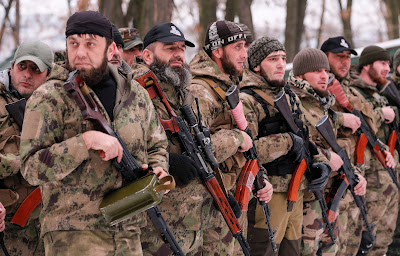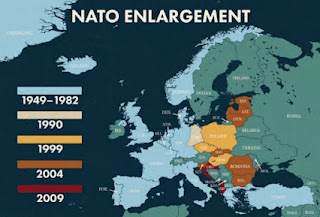Monday, Feb. 21, 2022
The Kremlin has announced that it will recognize two separatist regions in eastern Ukraine: Luhansk and Donetsk. Russian "peacekeeping" troops are being sent in.
Why do this? And why now?
In my opinion, the Kremlin has made this move out of a recognition that their objective of bringing NATO to the bargaining table by holding a gun to Kyiv's head is failing.
So, what to do? Choose the least damaging alternative: let the separatist suckers in eastern Ukraine do the fighting, and meanwhile keep the pressure on Kyiv.
Why? Because this is the primary value of the separatist regions of Donetsk and Luhansk to the Kremlin. These two areas are valuable to Putin only for as long as they are still part of Ukraine and are able to create headaches for Kyiv. On their own, however, Donetsk and Luhansk are poor, post-industrial regions that don't provide much for Russia on their own. Instead, they are only useful insofar as they remain inside Ukraine. If Russia were to actually invade and occupy these areas, they would become Moscow's headache, rather than Kyiv's.
Putin is doing this because he would like to use threats against Ukraine as a means of slowing down or reversing NATO's expansion. Not because he is worried about NATO expanding into Ukraine per se.
Even before Russia's recent build-up on the Ukrainian border, the idea of NATO expanding into Ukraine has been a very far-fetched notion for years. This is because Russia has, since 2014, occupied the Crimea, which every NATO member considers part of Ukraine. If NATO were to expand into Ukraine, that would mean Russia would be occupying the territory of a NATO member, which many would consider tantamount to declaring war. As NATO's Article 5 maintains, "if a NATO ally is the victim of an armed attack, each and every other member of the alliance will consider this an attack against all allies."
It seems quite implausible, to say the least, that NATO's 30 members--every one of whom has a veto over expanding membership--would think it a good idea to expand into a country that already has Russian troops in it.
The Monroe Doctrine, Putin, and Post-Soviet Space: Don't Muddy the Waters
Crimea River: Water and Russian-Ukrainian Relations
The Not-So-Great Game: The US and Russia in Post-Soviet Space
Bad Idea Jeans: Ukraine Edition
Crimea and eastern Ukraine: Things Can Always Get Worse
Tough Options
Russia and the Politics of Citizenship
The Crimea: More Than Just a War
Trouble in Ukraine
***
More commentary, photos, and links can be found in the Borderlands Lounge.






No comments:
Post a Comment